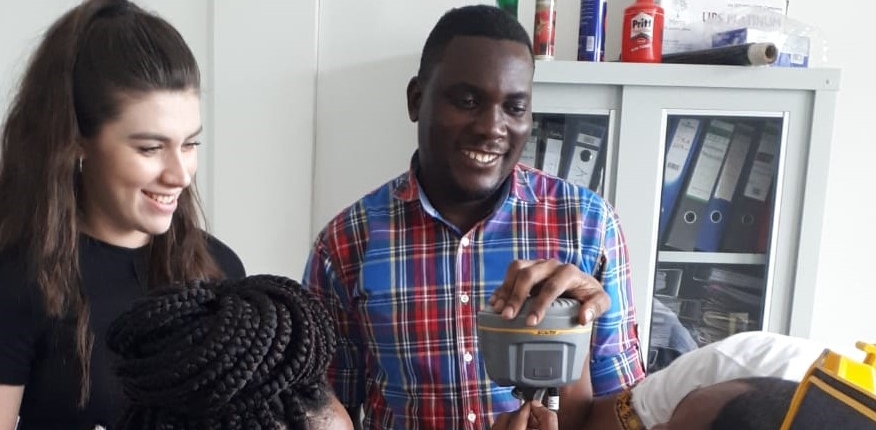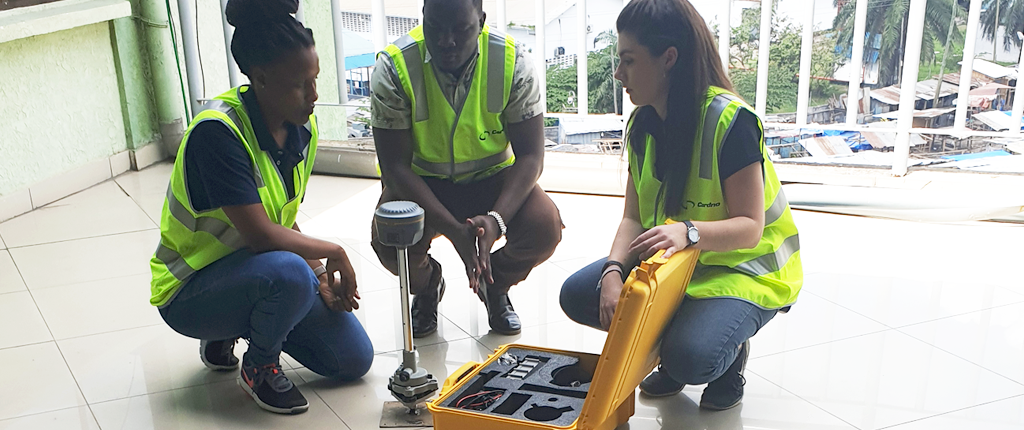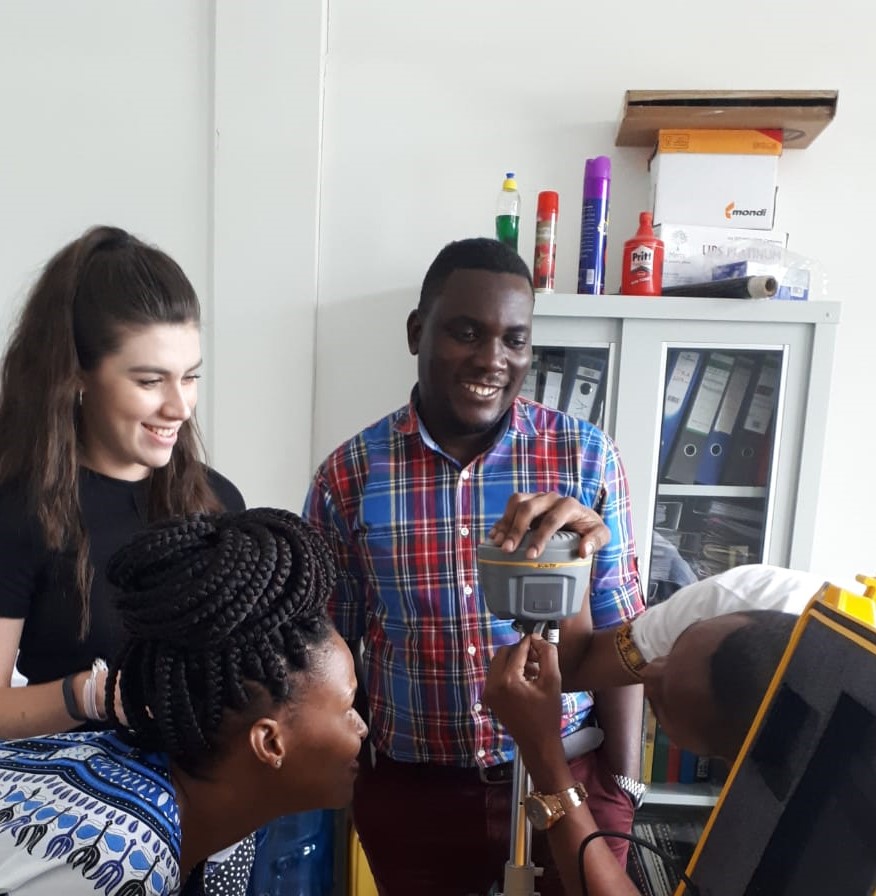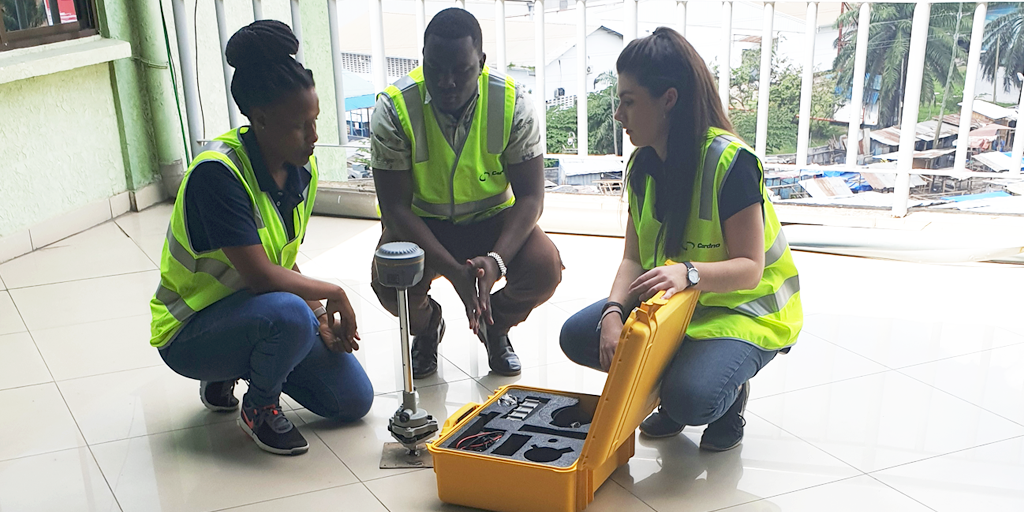A tribute to Fratelius Fidelis, and wonderings on when road safety will ever be taken seriously
Fratelius Fidelis, a key contributor to ITT’s award-winning DMDP Project in Tanzania, passed away in a tragic car crash. His dedication, growth, and untimely loss highlight the urgent need for global road safety measures. Rest in Peace, Fratelius.
More....
Just over one year ago we had to say goodbye to one of the nicest guys we ever had the pleasure of working with, our friend, Fratelius Fidelis. Fratelius worked with us on our award winning DMDP Project in Tanzania, and the fact it was award winning was in part due to Fratelius’ work.
Fratelius joined the project in early 2019 and stayed with it until his passing in August 2020. He was a young man of just 27 years at the time, a Civil Engineering graduate, and very hard-working, if quite shy, at least initially until he got to know us all, and learnt how to understand the guttural-sounding accent of our Team Leader. There are many reasons of why Fratelius was such a top guy, for example, having one of only two sets of keys to the office, Fratelius was the sort of guy that you would ask what time he was finishing work that evening, so that you don’t keep him in the office longer than he planned to be. But he would always respond by asking what time you were finishing, and then he would tell you he was planning to finish later than that. It wasn’t true, but he was always trying to make you feel at ease and allow you to continue working into the late hours, if you needed to, regardless of whether that was going to inconvenience him or not. And if you couldn’t get an Uber to get you back to the hotel after that, he would drive you there himself, adding on another hour to his own day.
As the project continued at 6 and sometimes 7 days of 12 hour shifts a week, we saw Fratelius develop into a more competent and more confident engineer. It was an incredible privilege for us to be a part of that, since much of our work relates to building capacity in the locations we are working, and in Fratelius, we felt we were building a star of the future.
Owing to his performance, great attitude and unwavering dedication to working hard, Fratelius was given a payrise, which is a highly unusual practice to take place mid-project. With his increased salary, he was able to start saving more money and did what many young people do when they can afford to – he bought his own car. He could already drive of course and was both a safe and smooth driver. Our Team Leader and Fratelius had jokingly graded each other’s driving skills from time-to-time in terms of who was the safer driver. By March of 2020, although the project was continuing as normal, all of our international team including the Team Leader were forced to leave Tanzania due to the COVID-19 pandemic that was leading to travel restrictions. However, due to the competence of our local team, of which Fratelius was a key member, we knew the project remained in good hands, and this continued to be proven correct as the year progressed.
Then, in August of 2020 we received the devastating news that Fratelius had been killed in a very serious car crash. The incident itself, occurring on a Sunday morning in daylight hours was, like most crashes, entirely preventable. Although we will never know the exact details of what happened since both Fratelius, his passenger, and indeed the driver of the other vehicle, a much heavier truck, were pronounced dead at the scene, we do know it was a head on collision with both vehicles coming to rest in the centre of the road facing one-another.
Losing such a wonderful young man was incredibly painful for everyone who knew him, and it is not unreasonable to say that Tanzania also lost someone who could have been major contributor to the roads sector, which Fratelius worked in. For those of us who work in road safety, we know full well that the statistics tell us that young people are disproportionately represented in road casualty numbers, and are now the leading cause of death for 5-29 year olds in the world. We also know that in spite of 10 years of the UN’s Decade of Action for Road Safety from 2011-2020, which aimed to cut the casualty rate by 50% over ten years, we have not seen casualty rates decrease at all in any single Low-Income Country.
Of ongoing concern then, is how this can still be happening in the first place? How can we, as a global community, accept the annual deaths of more than a million people a year, every year, and do almost nothing serious about it? We know, for example, that it is not complicated to make roads much safer, even in the absence of data, and indeed iRAP has advocated for a global upgrade of road infrastructure to become at least a “3 Star” out of a maximum of 5 Stars. The infrastructure measures needed to achieve this are simple and relatively low cost. In the case of Fratelius’ incident, the inclusion of a central median in the road would have been enough to avert such a disaster happening in the first place. Such simple measures, and such a high price for failing to act.
We don’t know how long this will go on for until Governments and other major stakeholders around the world act decisively to reduce road casualty rates, but ITT will continue to advocate for road safety everywhere it works, and educate those with an interest in it as we did at the University of Nairobi earlier this year.
On the global scale, Fratelius may just be another statistic that should not have been so, and no doubt has been recorded as such as far a Global Status Reports go. But to us, and everyone who knew him, he was far, far more, as no doubt was the person or persons you know yourself who have passed away so needlessly. We do wonder how many more talented young people will go the same way before road safety becomes a genuine priority.
Rest in Peace, Fratelius.






